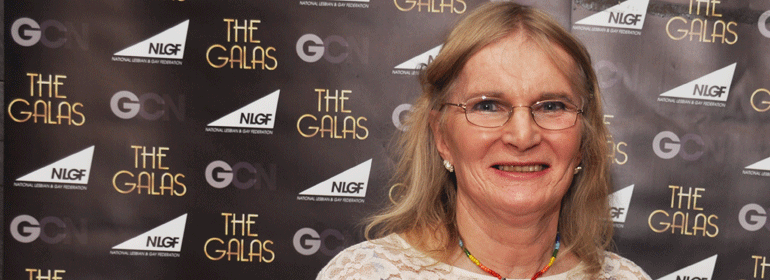The gender recognition bill needs to be improved and introduced as soon as possible so that trans people can get justice in Ireland, says Rob Buchanan.
It’s been 20 years since Dr Lydia Foy (pictured) courageously began her fight to get a new birth certificate to reflect her true female gender. Her legal challenge and its subsequent refusal began the long, and sadly often fruitless pursuit, of trans rights in Ireland. But there is light at the end of the tunnel.
In 2007 the High Court acknowledged that Ireland’s failure to recognise trans people’s identified gender was a breach of the European Convention on Human Rights. To address this a proposed Gender Recognition Bill was finally released last summer, as LGBT folk and their supporters took to the streets of Dublin city for Pride. But sadly the content of the draft bill fell short in many areas, and drew heavy criticism from transgender advocates as well as the Oireachtas Joint Committee on Education and Social Protection.
But we should not view the painfully slow and ham-fisted attempts at drawing up a Gender Recognition Bill to be solely an indication of transphobia in our society. They are yet another reflection of the bumbling nature of bureaucracy in this country, across all areas of policy, social and economic.
One of the numerous critical flaws in the current draft is the lack of recognition of younger trans people. According to the draft, the minimum age at which a person could apply to change their registered gender would be 18, which will cause great difficulty for an already vulnerable section of society. The Oireachtas Joint Committee has appealed to have the age reduced to 16. This is no small caveat. Young trans people need to be protected in schools, where they can be subject to a lack of recognition, or a lack of privacy, because of the personal feelings of authorities in those schools, and those young people have no recourse because they can’t change their gender on their birth certificates. Recognition can make a huge different in legitimising a young person’s identity and giving them a sense of security, thereby setting them in good stead for a happier future.
The proposed bill also requires married transgender people to divorce their spouses in order to qualify for recognition in their preferred gender. Forced divorce is legislative cruelty that will effectively tear families apart, and it is clearly unconstitutional. As with so many issues surrounding the LGBT community at large, there was precious little consultation with the actual people this life-altering bill will effect. In the cue to throw in their two cents about how minorities should be treated under Irish law, it seems that fringe religious lobbies are ahead of those people who will be directly affected.
Whether intentional or not, the constant delays and inadequacies in addressing and improving trans people’s lives is symptomatic of the attitude on the street.
It is mind boggling to me that any stranger should feel that his or her rights are impinged or even affected by another stranger being legally recognised on a birth cert in their preferred gender. And yet this right is doggedly defended.
But it’s not only resistance to legal equality that trans people face. There has been a frightening rise in transphobic violence across the world. The very existence of trans people is seen by the ignorant as both a challenge to established norms and an invitation to brutalise.
Trans people are an oft-stigmatised minority even within the LGBT minority. It’s a source of frustration and shame for me as a queer man that elements within the gay community would seek to distance themselves from trans people. They feel somehow that the trans fight is not our fight. Thankfully this sickening and hypocritical attitude is rapidly altering, but it’s something we queers still need to address. We must not forget that the fight for gay equality is a fight for the equality of all people, including trans and indeed straight people. No one is free until everyone is free.
The social implications of the passing of an updated Gender Recognition Bill for our Irish trans community will be huge. The problems facing trans kids in school and trans adults at work border on the unimaginable for most people. But more than than that, while the Irish government fails to adequately recognise trans people’s preferred genders, then it is a government that’s actively taking part in the discrimination which trans people face daily. When your own country officially doesn’t cherish and respect you, then it is reinforcing and legitimising prejudicial and antisocial behaviour inflicted upon you.
The sooner the Bill is rectified and passed to the satisfaction of the people whose lives it effects, the sooner this country can take another step towards equality for everyone.
The Gender Recognition Bill is justice, not special treatment. And it needs to be introduced now.
© 2014 GCN (Gay Community News). All rights reserved.
